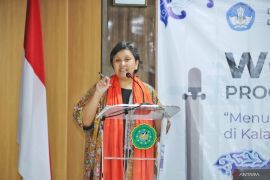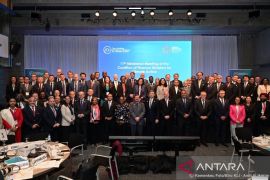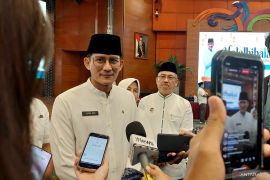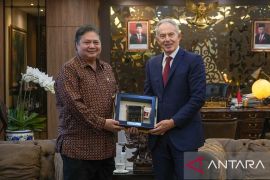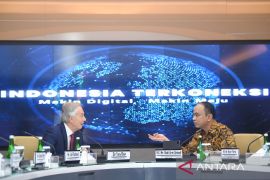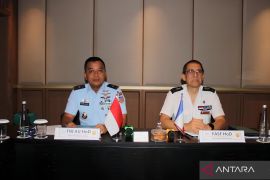Tighter control is needed to prevent consumption of subsidized oil fuels from exceeding the target of 46 million kiloliters in 2013.Jakarta (ANTARA News) - Head of the Fiscal Policy Agency at the Finance Ministry Bambang Brodjonegoro said tighter control would be imposed this year on consumption of subsidized oil fuel.
Tighter control is needed to prevent consumption of subsidized oil fuels from exceeding the target of 46 million kiloliters in 2013, Bambang said.
Consumption of subsidized oil fuels has always exceeded the annual target in the past years disrupting plans in energy subsidy provision.
"We have carried out a series of options to exercise the measure in controlling consumption of subsidized oil fuel," Bambang said here on Friday.
He said consumption of subsidized oil fuel could reach 53 million kiloliters this year without firm policy to control consumption .
Meanwhile, the country`s economy is growing and the disparity of oil fuel prices is widening between subsidized and non subsidized oil fuels, he said.
"There is potential to surge to 50 million-51 million kiloliters (in consumption) as a result of the growing economy," he said.
If the price disparity is getting wider there will be migration in fuel from Pertamax to premium , he said.
The consumption, therefore, could go up to as high as 53 million kiloliters, " he said.
Pertamax is non subsidized gasoline and is much more expensive because of its higher content of octane, and Premium is subsidized with lower content of octane.
He said without control, consumption of subsidized gasoline would continue to go up and the subsidy the government has to provide would exceeded the target set in the state budget.
"We are exercising what we could do . One is a combination of price adjustment and non price factors," he said.
He said every increase of one million kiloliters in consumption of subsidized oil fuel from the target of 46 million kiloliters will mean an additional spending of Rp5 trillion-Rp5 trillion.
He said control has to be tightened to reduce dependence on imports for oil which was one of the major contributors to the country`s trade deficit in 2012.
Based on data by December 2012, spending on energy subsidy reached Rp306.5 trillion or 151.5 percent higher than the target of Rp202.4 trillion set in the state budget.
The amount included Rp211.9 trillion for oil fuel subsidy , overshooting the target of Rp137.5 trillion (154.2 percent) and Rp94.6 trillion for electricity subsidy exceeding the target of Rp65 trillion (145.6 percent).
Consumption of subsidized oil fuels reached 45.2 million kiloliters in 2012, overshooting the target of 40 million kiloliters as a result of failure in control, he said.
In 2013, the government`s target for spending on energy subsidy is set at Rp274.7 trillion including oil fuel subsidy making up Rp193.8 trillion and electricity subsidy Rp80.9 trillion. (*)
Editor: Heru Purwanto
Copyright © ANTARA 2013
